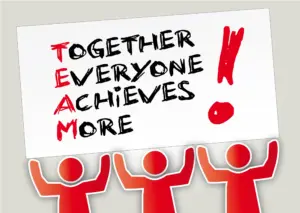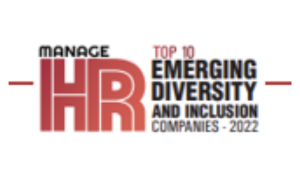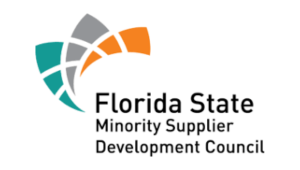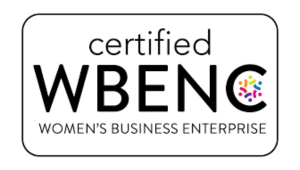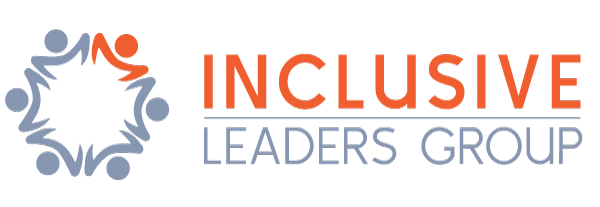Veterans Day last week was cause for contemplation as well as celebration here at Inclusive Leaders Group. We have military veterans and family members of veterans on our consulting team, and we honor the dedication and service provided by these American heroes. If you missed our special Veterans Day Episode of The Inclusive Enterprise Podcast, How Your Diversity & Inclusion Strategy Should Include Veterans, please listen, subscribe, and leave a review!
Inclusive Leaders: The Catalysts For Allyship and Belonging
Earlier this year I wrote a post about the benefits of inclusive leadership driving value in the enterprise and how high-performing organizations are currently measuring, recognizing, developing, and rewarding it.
The Meaning of ‘Inclusive Leadership’
Russell Reynolds Associates, a management consulting firm defines inclusive leadership as:
- A set of initiative-taking behaviors that leverage the unique attributes of each person in the workplace with the goal of enhancing overall performance potential.
McKinsey & Co. expands the definition to suggest, “Inclusion exists when employees share a positive connection to the organization and their peers (belonging), perceive that everyone has an equal chance of succeeding (equality), and feel safe to express thoughts, ideas, and concerns about work (openness).”
Inclusive Leaders: We Need Them Now More Than Ever!
Over the past year, this Blog and the Inclusive Enterprise Podcast have focused on changes and challenges post-George Floyd and the Black Lives Matter movement that have revealed new weaknesses and opportunities for organizations of all sizes, including with regards to recruiting and retaining top talent. Hot topics run the gamut, from remote work and employee-monitoring technology to gender equality and mental health support. Allyship, inclusion, and belonging have quickly moved to the top of the list of priorities, but how many companies understand what these ideologies really mean and why inclusive leaders are so essential?
Workplace Allyship
Allyship in the workplace means recognizing the privilege that members of majority groups have in a professional context—and using that privilege to aid in the dismantling of systems and processes that prevent colleagues from having equal opportunities. This can look different in different organizations, but here is a set of three core behaviors that make strong allies:
- Self-Education and Training: No, it is not possible for you to understand the lived experiences of marginalized and minority groups. But it is possible—and necessary—for you educate yourself on what these experiences may entail. As an ally, you should not only be aware of, but also strive to understand the mechanisms that cause discrimination as well as what “institutionalized racism” is. It is also your responsibility to be aware of the role the majority plays in the perpetuation of discrimination, as well as have an awareness of your own privilege and how you can use it to be an ally.
- Communication and Coaching Others: Knowledge is not enough. You should be able to share that knowledge and educate others. Step out of the role of simply being an informed bystander by taking action to demonstrate what you have learned, opposing, and exposing discriminatory actions.
- Action and advocacy: Do what you can to support and promote marginalized groups. Actively participate in activities geared toward dismantling institutionalized oppression. Do so publicly and engage in and with people and platforms working toward these same goals.
A Culture of Belonging
At Inclusive Leaders Group, my consulting team and I collaborate with leaders at client organizations who until recently, often ignored the workforce racial and ethnic differences, believing that they were not relevant in the workplace. Even today, some leaders do not believe it is their responsibility to make their employees feel comfortable or connected. These leaders may not see the value of creating a culture of belonging, so they delegate the responsibility for creating such a culture to the human resources department.
Others believe they are doing the right thing by treating everyone in the company the same. As a result, these leaders often assume that every employee fits in and experiences a sense of connection and psychological safety within the organization, the same way. I strongly recommend that creating a culture of belonging requires conscious effort on the part of every leader, at every level, from frontline managers and supervisors to the C-level.
Inclusive Leaders: The Catalysts For Allyship and Belonging
We have described the journey to becoming an inclusive leader starts with self-awareness and education. The goal is to recognize and address your own biases, value diverse thinking, and celebrate different perspectives. Once you do that, you can encourage others at work to do the same.
An inclusive leader who practices allyship and creates a sense of belonging:
- Takes a collaborative approach as opposed to command and control
- Operates transparently rather than behind closed doors
- Is culturally agile, not tied to their own worldview
- Fully embraces the vast diversity of today’s workforce
- Creates a safe space for people to give the best of their talents
Creating a Learning-Oriented Inclusive Leadership Culture
We are encouraging our clients to think more proactively about selecting and developing inclusive leaders, which must consist of providing clear feedback and a roadmap around inclusive leadership behaviors.
In my client consultations, I often refer to a recent survey by Harvard Business Review that found that one culture style differentiated organizations with inclusive leaders, from those that were not. It is the learning-oriented culture that emphasizes flexibility, open-mindedness, and exploration, and can equip organizations with the ability to adapt and innovate. To foster a learning-centric culture, leaders should:
- Lead by example by being open to innovative ideas, failure, and honest feedback
- Share how their own perspectives have changed over time
- Recognize those that think creatively and take risks
Contact Us for a FREE consultation regarding creating a learning-oriented inclusive leadership culture.
 Charlotte F. Hughes is the successful Co-Founder and Chief Executive Officer of Inclusive Leaders Group. She has designed and delivered sessions for frontline, mid-level, and senior leaders at Morgan Stanley, Cox Enterprises, Kimberly-Clark, Ascension Health, and Children’s Hospital Association among other leading organizations. Charlotte’s passion is bringing evidence-based narrative and storytelling both in the design of diversity and inclusion strategy and in driving inclusive behaviors. In addition to working collaboratively with clients, Charlotte is responsible for the growth and development of our consulting team who are central to all Inclusive Leaders Group solutions.
Charlotte F. Hughes is the successful Co-Founder and Chief Executive Officer of Inclusive Leaders Group. She has designed and delivered sessions for frontline, mid-level, and senior leaders at Morgan Stanley, Cox Enterprises, Kimberly-Clark, Ascension Health, and Children’s Hospital Association among other leading organizations. Charlotte’s passion is bringing evidence-based narrative and storytelling both in the design of diversity and inclusion strategy and in driving inclusive behaviors. In addition to working collaboratively with clients, Charlotte is responsible for the growth and development of our consulting team who are central to all Inclusive Leaders Group solutions.
Meeting you where you are with inclusion, insight, and inspiration ….Together, we can create a better world.




